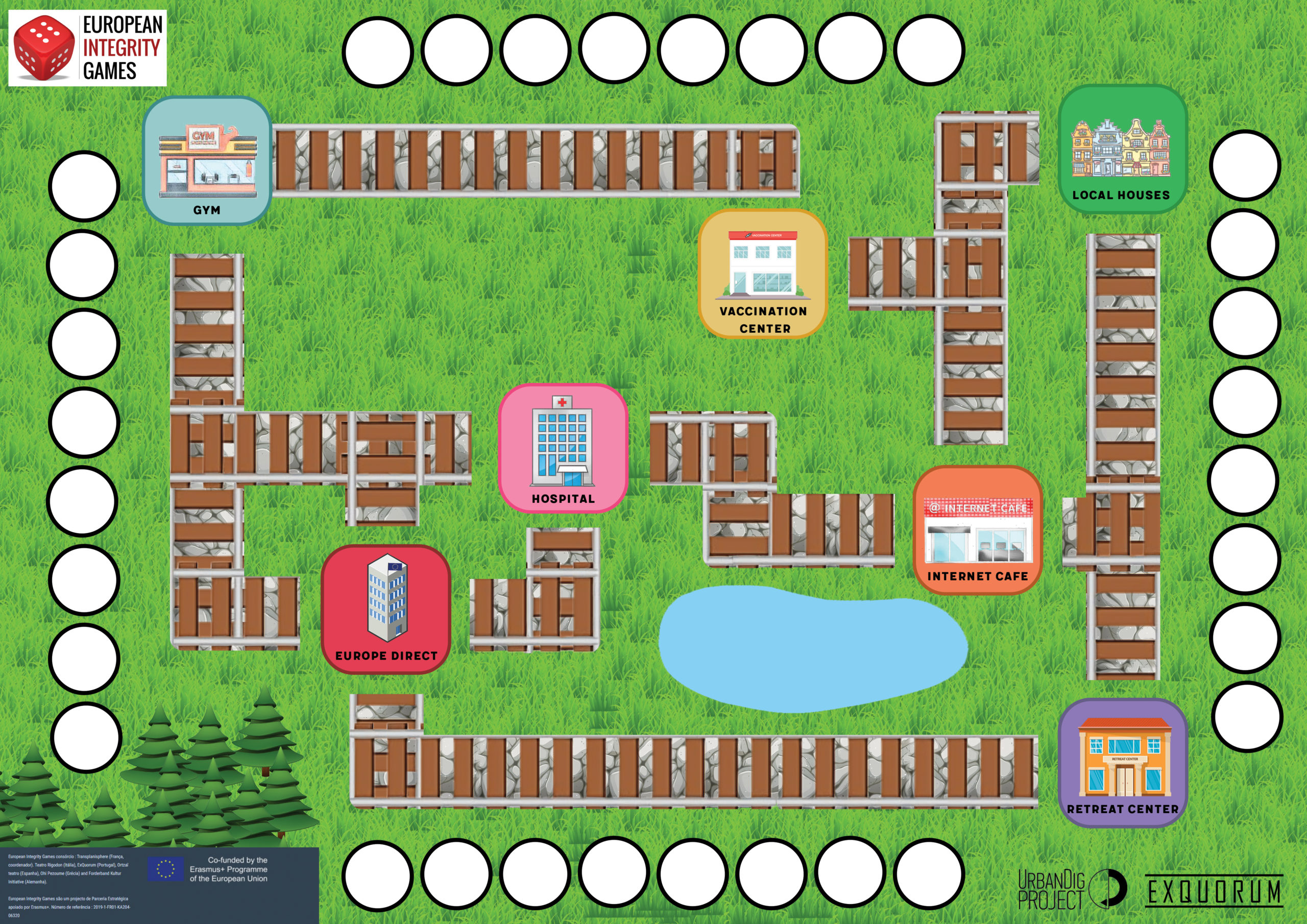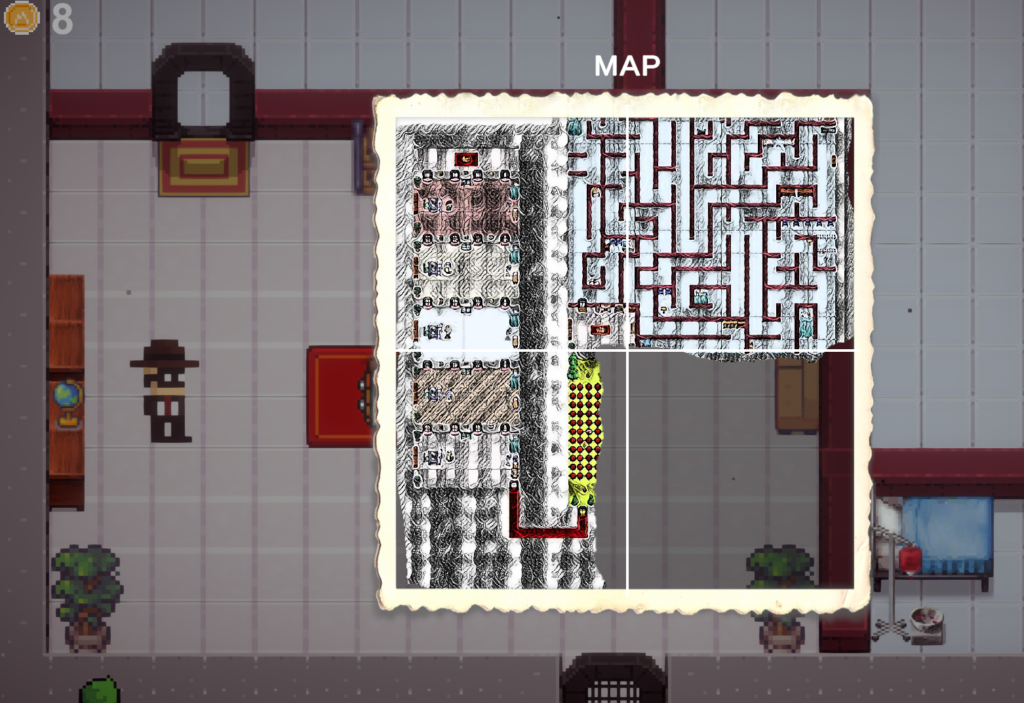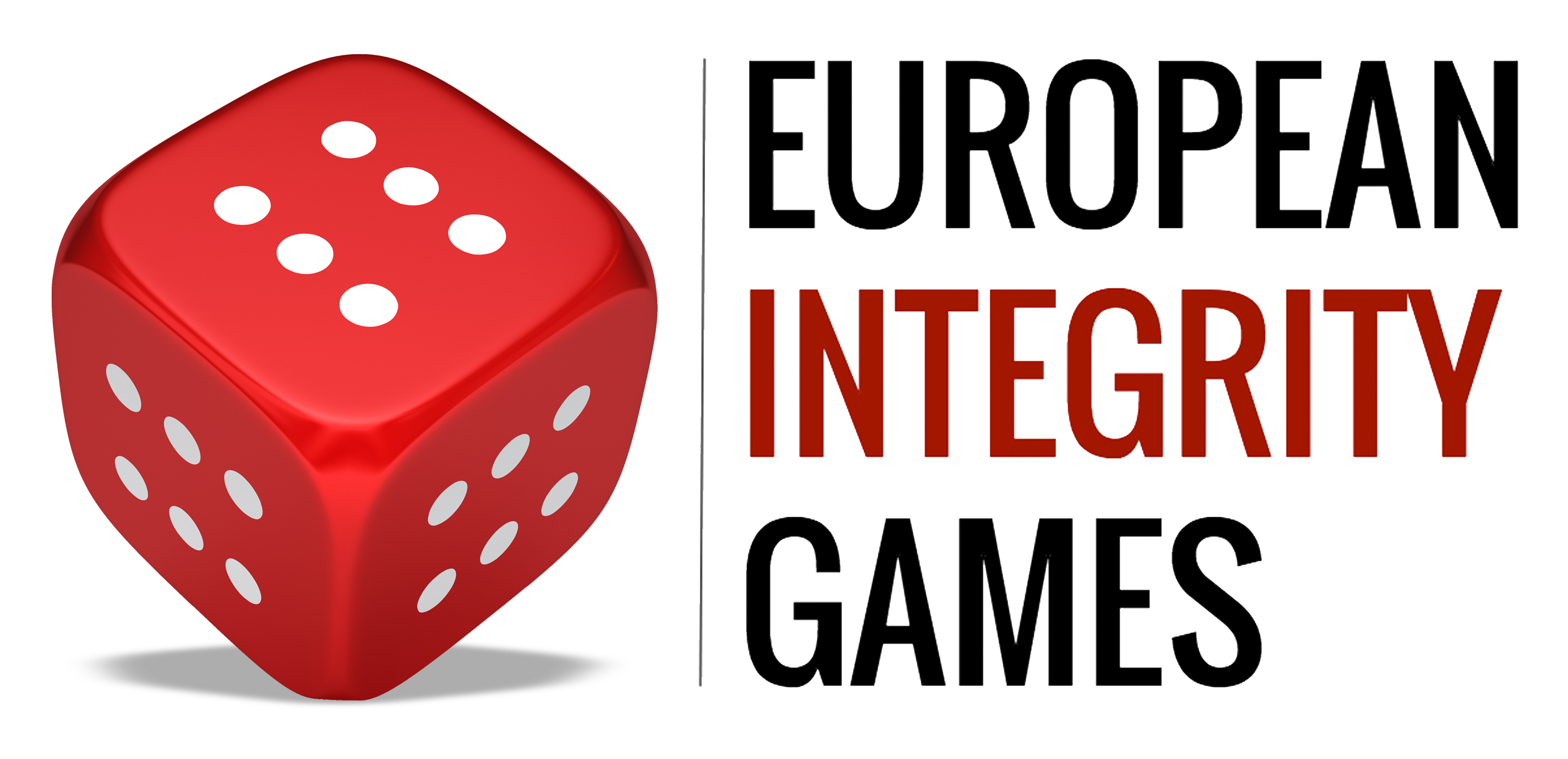Fake News in Health Games
The “Fake News in Health” games address the issues of integrity, fake news and manipulation/corruption in the health and drugs universes. Based on the principle of pedagogical games, the players follow the story of a student that, with the help of their teachers, search for an invisible network of fake news and try to clear the information, based on scientific data. The aim is to detect the most truthfull information as possible.
This experience proposes a narrative sequence with, first, the 2D game, and after, the board game. They can be played in a row or independently:
Additional resources are also available to deepen the topics covered.
The games were created in collaboration by ExQuorum (Portugal) and UrbanDig Project (Greece).

Focus on health system and fake news
In a world saturated with information, it is difficult for citizens to find their way around and to access verified and scientific information. In the field of health, this misinformation can have very important consequences for citizens.
Fake News on Health System refers to the ambiguous system of communication that embraces health system medicines, not forgetting health and public policies (pharmaceutical industry, information on internet, hospitals, marketing, etc…).
The relationship between information, fake news, conspiracy theories, is proximate and, many times, mixed and messy.
In an indistinct panorama (many times muddy), it urges to know how to find the answer, as close as possible to the truth. This issue has a strong impact on individual health, but also on the health system, public policies, communication as well as political and financial moves.
By proposing these experiences, in which participants follow the story in a critical way, the partners hope to touch citizens on an emotional level and thus simulate their desire to learn more on Fake News subject, both on health communication and on fake news as a topic, as nowadays everything is connected. As well as develop critical thinking about the flow of information they receive every day.


A participative and educational scenario
A professor asks a student to help him discover how fake news affect people’s decisions and how to incorporate these issues into his future work.
In the 2D game, in an old school perspective, you will take on the character of David, a young student, and you will have to overcome several levels, finding a lot of information along the way.
You will go through various levels (mazes, questions, lost keys, a walk in the garden, a game of levers, culminating in a set of rooms with various questions, asked by professionals). At the end, you will be asked some questions, and if you are successful, you will be suggested to find your way out to the next chapter.
In the board game – the next chapter – this time collectively with friends and colleagues, you will meet a professor who is a bit crazy. You will have to answer some questions related to health and misinformation, while walking around and looking for the answers in the city. One of the players will be the Game Master.
Whoever wins the game will gain access to an internship at the professor’s university clinic.

2 types of games
Developed on Unity3D, this game offers an immersive single-player experience through 2D oldschool settings and cinematics. Anyone can download the game for free on their computer.
This board game can be played by any group of citizens for free, thanks to a downloadable kit. This kit includes all the necessary elements to set up the game. It guides you step by step in the installation and in the animation of the game.
To complete this pedagogical experience, additional resources are also available to dig deeper in the topics explored. They include explanatory videos, experts interviews, articles on fake news in health and regulation topics.
